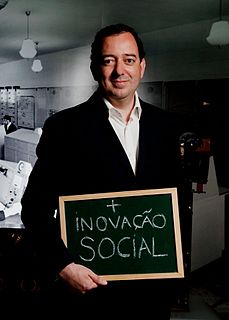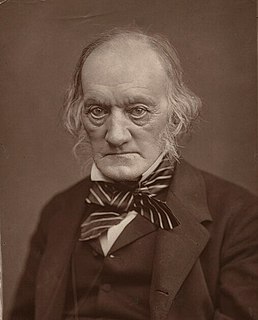A Quote by Annastacia Palaszczuk
I know in my state, I am leading innovation and we need to diversify the economy. But you can't have innovation unless you have education.
Related Quotes
In the eighties and nineties, the innovation agenda was exclusively focused on enterprises. There was a time in which economic and social issues were seen as separate. Economy was producing wealth, society was spending. In the 21st century economy, this is not true anymore. Sectors like health, social services and education have a tendency to grow, in GDP percentage as well as in creating employment, whereas other industries are decreasing. In the long term, an innovation in social services or education will be as important as an innovation in the pharmaceutical or aerospatial industry.
Innovation is the specific tool of entrepreneurs, the means by which they exploit change as an opportunity for a different business or a different service. It is capable of being presented as a discipline, capable of being learned, capable of being practiced. Entrepreneurs need to search purposefully for the sources of innovation, the changes and their symptoms that indicate opportunities for successful innovation. And they need to know and to apply the principles of successful innovation.
Both SOPA and PIPA are toxic. My view is that anyone who supports these bills either doesn't understand what they are supporting or is simply no friend of innovation. And, if you are no friend of innovation, I can't support you in any way, as innovation is the lifeblood of our economy, our country, and what I've dedicated my life to.
If you look across the economy, if you have multiple players in an industry, you have more customization, more innovation, greater choice for consumers. The more you have consolidation, the less likely you are to invest in innovation. It becomes all about driving down cost and mass production. And that's not good for innovation in an industry.
Energy is a sector of the economy that has been particularly resistant to innovation. This is precisely the problem. It is why we are still dependant on energy sources that are 100 to 150 years old while virtually every other sector of the economy has transformed itself. This is why we believe that the faith that many environmentalists still hold that carbon regulations and taxes will drive sufficient private sector investment into energy markets to create the kind of innovation we need is unfounded.
Getting global innovation projects right is really important as they create competitive advantage two ways. When the knowledge for an innovation is from different sites around the world, it's very much more difficult for competitors to copy these innovation - they'd have to access the same knowledge from the same places. Secondly, costs and time to market can be significantly reduced leading to first mover advantage through parallel development in global projects.
We're just trying to end illegitimate government support for a single technology, which is un-American. We should be leading the world in the next generation of technological innovation. But we can't unleash private capital because of what the government is doing to stifle innovation and to choke competition.

































